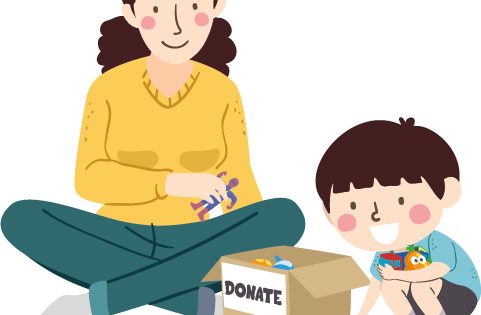Nightmares are scary dreams that can visit anyone and are a normal part of childhood. Nonetheless because it affects a child’s sleep, it can be unsettling for parents. In fact, the American Psychiatric Association reports that up to 50% of children between the ages of three and five have nightmares that are severe enough to cause their parents concern. However, before jumping to conclusions that your child’s nightmares are a symptom of a more severe psychological problem, read on to find out how you can alleviate your child’s nightmares.
| Scary Dreams |
|---|
|
Most nightmares occur late in the sleep cycle or early part in the morning (between 4 am and 6 am). This is the stage where REM sleep or “Dream Sleep” usually occurs. Nightmares are very closely linked to a child’s developmental stage. For instance, toddlers may dream about being separated from their parents, preschoolers may dream about ghosts and monsters while school-aged children may dream about death or real dangers. |
What To Do?
You may not be able to prevent nightmares in children, but you can definitely lower its occurrence in your child. Follow these simple steps below for more peaceful nights:
- Talk to your child about the nightmare. Believe it or not, this may be the best solution there is. Nightmares are usually related to worries and unpleasant experiences that children may have. This stress and anxiety may crossover into their nights, disturbing their sleep. Make an effort to talk to your child daily to clarify his doubts and reassure him so that he won’t let his imagination run wild.
- Set a positive bedtime routine. This means having your child go to bed and wake up at the same time everyday. Also, ensure that your child avoids any boisterous activities before bedtime. Instead, do something that calms your child down (like reading a storybook) and eases him into sleep. This will not only reduce the frequency of nightmares in your child, it will actually help him settle in and fall asleep quicker.
- Use a nightlight. Darkness can be very intimidating, especially to your young child. Using a nightlight will also prevent your child from having frightening thoughts right before falling asleep. Additionally, if they do awaken because of a nightmare, the nightlight calms them, enabling them to seek solace in a familiar environment that they know to be safe.
- Watch what he eats. What your child consumes can affect his or her quality of sleep. Avoid food and snacks high in caffeine, sugar and carbohydrates before bedtime as they tend to stimulate the brain. The best bedtime snack (if you must) is a glass of warm milk without any added sugar or chocolate. Milk contains tryptophan, which is a sleep-promoting substance.
| Recurring Nightmares |
|---|
|
According to research, the frequency of nightmares differs among children. Some may only have a few scary dreams a year while about 25% of children may have at least one nightmare a week. If your child continues to be awakened by nightmares more often than that, or seem to exhibit erratic behaviors while asleep (screaming, sweating, hyperventilating, dilated pupils, difficult to shake awake), you should probably seek professional advise as they may not be your common scary dreams. |







Comments